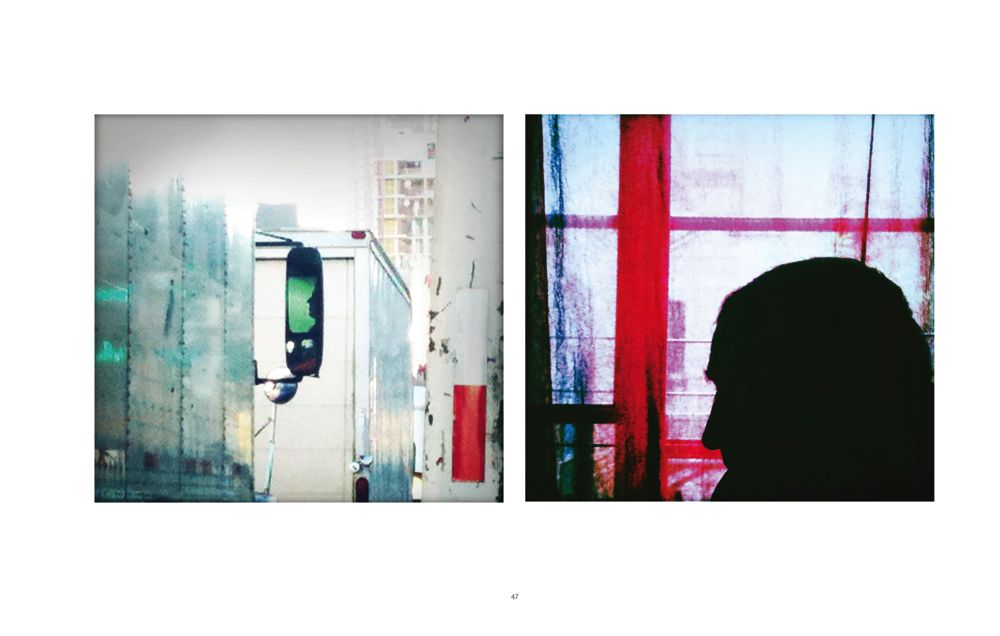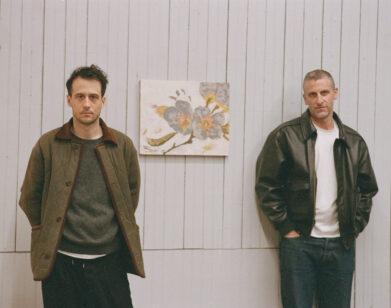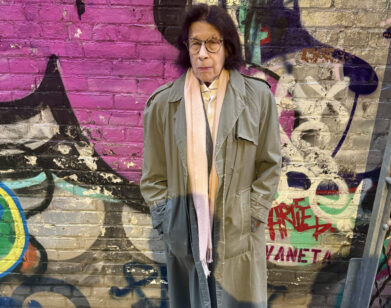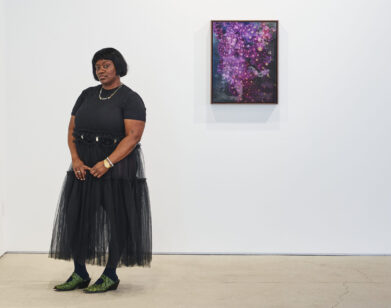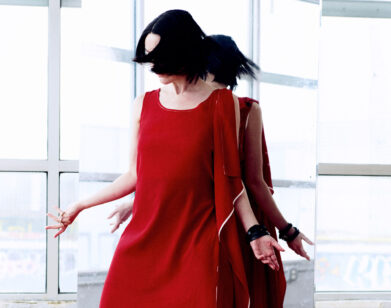Henry Jacobson’s Very Smart Phone
“Photography itself is a lower form of art.” It’s a strange statement to come from a photographer, but Henry Jacobson, whose new monograph, Postcards Home (Daylight) has just been published, has an unusual relationship to his medium.
He qualifies the statement, of course: “It’s not that I don’t value photography, or that I don’t think it is incredibly hard to do well, but photography has always been democratic, it has always been technological, and its popularity is a direct result of the rise of mass production.” It follows, then, that Jacobson’s book would be entirely constituted of camera-phone photos, the most democratic of all genres of photography (if it qualifies at all).
Though nearly everyone owns the technology to create images like those in the monograph, Jacobson’s work stands out for its abstract aspects. In producing the photos, he sought to emphasize the camera phone’s qualities rather than attempt to reproduce images from a DSLR. The result are pictorial-inspired shots with a soft focus and a hazy, dreamlike quality. Take, for example, the cover: a pixilated black-and-white shot of Jacobson’s eyes, which, though absent of a duck face, is still technically a “selfie.”
The photos themselves are a sort of record of Jacobson’s three years traveling while working as a photographer and filmmaker. Many of them—his friend’s kids playing, a truck driver’s face reflected in the mirror—were originally sent as text messages to family and friends, hence the title. All of them were taken spontaneously and later compiled into the work.
He doesn’t view his work as elevating a “lower” form of photography, because he doesn’t view cell phone pictures as lower at all: “It’s kind of ridiculous, if you think about it. The medium itself is designed to be reprinted and distributed ad infinitum, but without imposing limits, no one can make any money off it—by the way, I do not exclude myself from this absurdity. So no, I think smartphone photography and image-sharing websites may represent photography in its truest form.”
What does Jacobson think of the ubiquity of smartphone photography? “It’s not photography that’s changed; it’s how people make money off of photography,” he asserts. “Photography is a commercial medium and has always changed as the technology evolves. I’ve tried to find a way to use that evolution to my advantage with this work, to make a book that acknowledges the evolution, even comments on it.”
Postcards Home is the next step in the simplest documentary tradition—simply carrying a camera around and seeing what transpires. This time, your camera also makes phone calls.
POSTCARDS HOME IS AVAILABLE TOMORROW, NOVEMBER 1, VIA DAYLIGHT.

